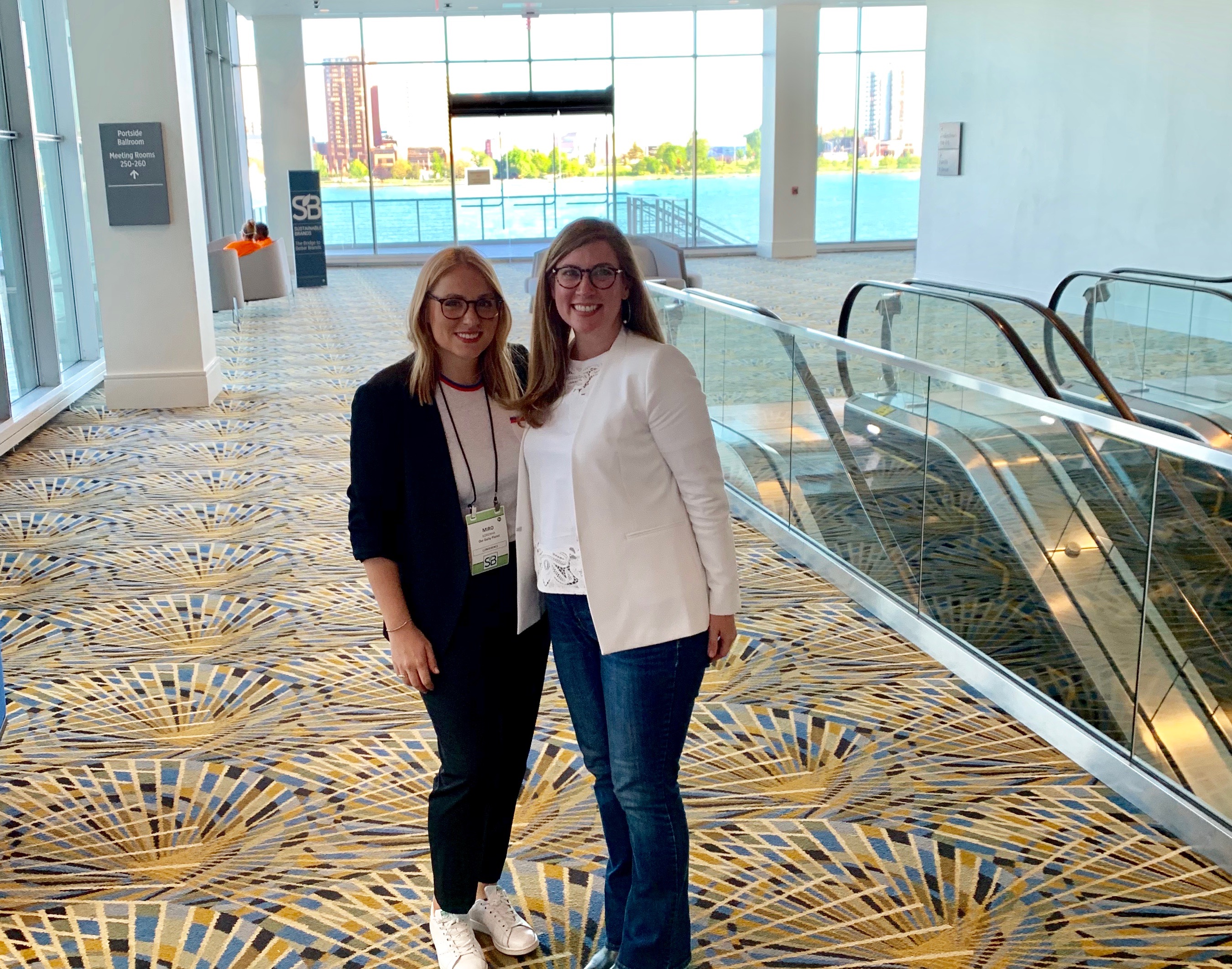
Miro and HP’s Ellen Jackowski at the Sustainable Brands conference in Detroit.
Marine plastic pollution, as we often mention here, is a staggering problem–one which left unaddressed will ensure that there is more plastic than fish in the world’s oceans by 2050. While companies have announced initiatives to combat the plastic waste crisis, our question is always, how do you stop new plastic from being made while not shifting the cost of expanded recycling infrastructure to cash-strapped municipalities? At the Sustainable Brands conference happening this week in Detroit, I (Miro) got a chance to sit down with Ellen Jackowski, HP’s Global Head of Sustainability Strategy and Innovation, to ask her these very questions about HP’s initiative to use ocean-bound plastic in their recyclable ink cartridges and now, personal computer monitors.
HP’s program was designed to stop plastic pollution at the source and scale the use of ocean-bound plastics by developing the first global network of ocean-bound plastics supply chains:
- Through a program in Haiti, HP has teamed up with local NGOs to create a market where local workers collect discarded plastic bottles that would have otherwise wound up in the ocean.
- These bottles are cleaned, processed, and turned into PET plastic pieces that HP then buys and uses to make new ink cartridges.
- Poverty in Haiti means that there’s no municipal trash collection or clean tap water so Haitians are reliant upon bottled water which then gets discarded in ditches that empty into the ocean.
- What’s really cool about this program is that black plastic and pigmented plastic bottles are far less recyclable but since HP’s ink cartridges are black, the company is able to buy all colors of recycled PET for their supply chain.
- When HP was creating this market the company ensured that workers who collect bottles and work in the processing plants are paid a living wage which has numerous economic multipliers in the local community.
Take a look at this video to see how bottle collectors are able to earn a living through the new ocean-bound plastics market being created by HP and other companies:
Why This Matters: Poverty is the fundamental driver of ocean plastic pollution because when countries don’t have waste collection infrastructure, trash ends up being dumped in the ocean for lack of an alternative. Tacking poverty by creating jobs through sustained markets is a fundamental step in ensuring that we don’t reach the 2050 scenario outlined above. Part of creating these markets involves companies who use plastic as an input to invest in better recycling infrastructure in the communities where they operate. Ellen told me that HP recently expanded its program in Haiti through a $2 million investment in a plastic washing line that will result in cleaner, higher quality recycled local plastic for use in HP products–an investment that she admitted she couldn’t have previously envisioned but ultimately a circular supply chain makes good business sense.
June 4, 2019 » HP, Ocean Plastic, plastic, plastic waste, sustainability


